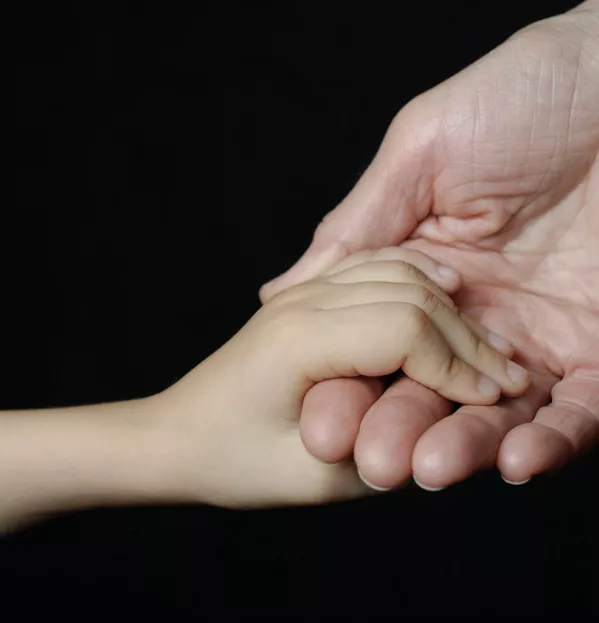Refusing to touch pupils is abuse, psychologists claim

Seeing a child they knew in tears, most adults would respond instinctively, with comfort and hugs.
Teachers, however, tend to rise above this instinct: fear of prosecution is often greater than concern for the upset child.
But now psychologists have warned that refusing to touch pupils during their dayto-day classroom interactions is a form of child abuse.
Members of the British Psychological Society (BPS) have said that teachers who do not touch children when they are happy, upset or worried could cause harm, hampering pupils’ development.
“What’s missing is a recognition of how important touch is,” said child psychologist Sean Cameron. “And that withholding touch is, in itself, a form of psychological abuse.”
The psychologists said that they wanted schools to change their attitudes towards physical contact with students, and to explain to parents that touch was not only necessary but an integral part of the teacher-pupil relationship.
‘Cruel’ on children
In fact, touch plays a vital role in children’s brain development, according to Professor Francis McGlone, head of affective neuroscience at Liverpool John Moores University. “Touch isn’t just good - it’s absolutely essential,” he said. “Denying it is like denying a child oxygen. I get very exercised about the demonisation of touch. It’s cruel, in my mind. It’s another form of abuse.
“The scientific evidence is incontrovertible. I’m not just talking psychononsense; I’m talking about proper, evidenced neuroscience.”
Physical contact between teachers and pupils is not currently illegal. Government guidelines state that there are occasions “when physical contact…with a pupil is proper and necessary”.
In practice, however, many schools, either explicitly or implicitly, discourage teachers from touching pupils.
Denying touching is cruel - it’s another form of abuse
The BPS held a conference on touch in schools and children’s services last Friday. Mr Cameron led the discussion.
He said that many heads and teachers saw touching a child as an unjustifiable risk, citing the case of a secondary teacher who put his hand on a boy’s shoulder to calm him down. The boy responded with: “Take your hands off me, you paedo.”
“By discouraging touch, you’re depriving a young person of a very humane reaction,” Mr Cameron said. “But you’re also setting up a situation where a young person can use this as a tool to put down or control a teacher. It’s a double whammy, really.”
Mary Bousted, general secretary of the ATL teaching union, said that her union acknowledged that a humane relationship with pupils involved occasional physical contact. But she added that she would always advise teachers to be cautious.
“Don’t put yourself in a dangerous position,” she said. “Don’t put yourself in a situation where a child can accuse you of inappropriate contact.
“Of course, children must be protected. But teachers also have a right not to have their career ruined by false accusations.”
Heather Piper, emeritus professor of education at Manchester Metropolitan University, said that she wanted society to move away from the panic surrounding child abuse, but that she understood teachers’ caution over touching pupils.
She noted that whenever a pupil makes an accusation of inappropriate touch against a teacher, the teacher is immediately suspended, pending investigation. Even if they are subsequently cleared, mud sticks.
“Most people are fearful of what others will think of them,” she said. “They’re fearful of the consequences of an allegation. We live in a society where people say, ‘There’s no smoke without fire.’”
‘Deleterious effect’
But, Professor McGlone said, the kind of empathetic touch that teachers saw as a risk was vital for children’s neurological development. “Babies that aren’t touched - it has a deleterious effect,” he said. “They tend to have high levels of stress and aggression as adults.”
Mr Cameron said that he believed that it was not enough for children just to be touched by their parents at home: human emotion cannot be compartmentalised in that way.
“It’s to do with context, isn’t it?” he said. “There are just some occasions when, as a human being, you need to touch another person. Just to show shared delight or horror or sorrow. These things happen in school as well as at home.”
You need a Tes subscription to read this article
Subscribe now to read this article and get other subscriber-only content:
- Unlimited access to all Tes magazine content
- Exclusive subscriber-only stories
- Award-winning email newsletters
Already a subscriber? Log in
You need a subscription to read this article
Subscribe now to read this article and get other subscriber-only content, including:
- Unlimited access to all Tes magazine content
- Exclusive subscriber-only stories
- Award-winning email newsletters